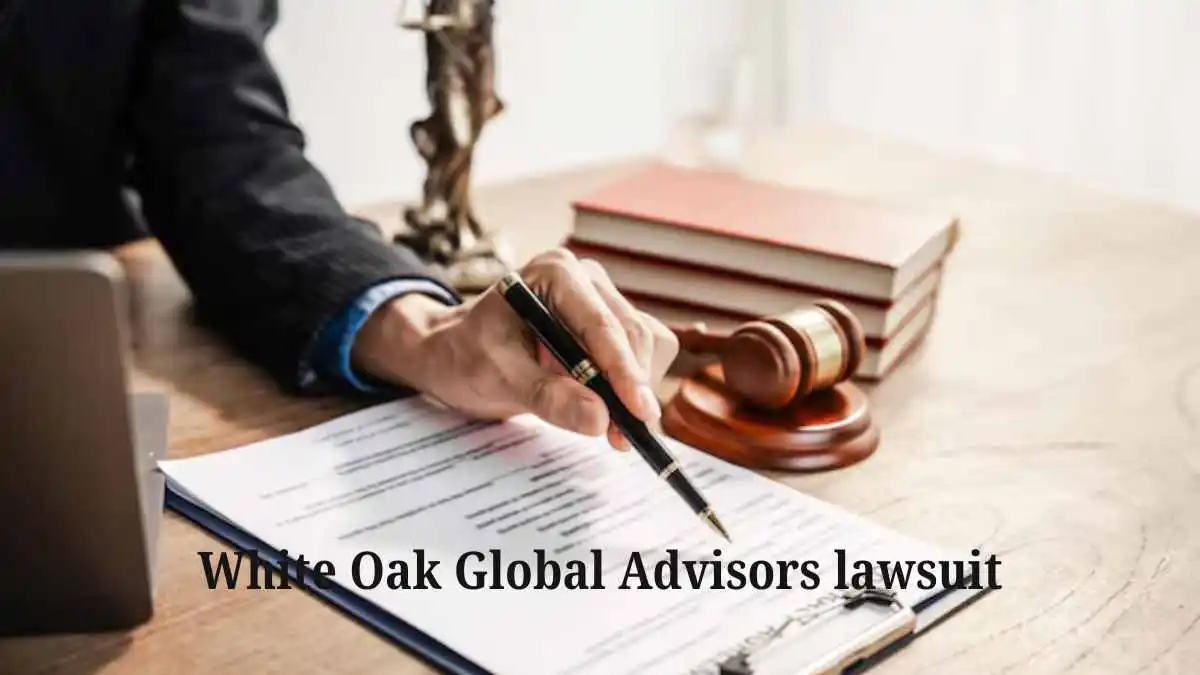LAW
White Oak Global Advisors lawsuit: A Fiduciary Misconduct Case

The White Oak Global Advisors lawsuit has also attracted attention based on the specific nature of the allegations of fiduciary misconduct regarding pension fund. The main ethical issues that are central to the case include self-dealing, where White Oak Global Advisors lawsuit was found to have engaged in activities that put its own interest before that of the clients, by using the client’s property for its own benefits. These actions are said to have resulted in major losses to the New York State Nurses Association Pension Plan (NYSNAPP). The case reached a $140 million settlement considered one of the largest penalties in fiduciary breaches in relation to the Employee Retirement Income Security Act (ERISA). Stemming from this case, this article examines the various aspects, consequences and repercussions of such a scenario.
Background of White Oak Global Advisors lawsuit
White Oak Global Advisors lawsuit, the subject of a breach of contract lawsuit, is a financial services company focusing on various types of investment products primarily on private credit. Formed with a reputation as an innovator, the firm was involved in managing assets for institutional clients such as pension funds, including NYSNAPP. However, claims of fiduciary misconduct did bring its reputation into question and placed it in the spotlight with regards to its operations. While Bridgewater had solid evidence of its successful strategies in managing assets, the lawsuit opened questions about the firm’s ability to govern and follow fiduciary responsibility to its clients. The case provides relevant lessons on the stewardship responsibilities of financial institutions that are usually relied upon to protect customer funds.
New York State Nurses Association Pension Plan (NYSNAPP).
- Pension Plan Overview: It is a defined benefit pension plan that offers retirement benefits to thousands of nurses within New York State to make sure that they have a source of income after retiring.
- Assets under Management: Shared valuable resources with White Oak Global Advisors for efficient management and development as professionals.
- Relationship with White Oak Global Advisor lawsuit: Depend on the expertise of the firm to achieve maximum returns and stable funds.
- Financial Losses: Lack of proper management by White Oak led to huge losses from which the pension plan was greatly impacted.
- Impact on Beneficiaries: The losses raised issues to do with pensions for NYSNAPP members showing the implications of fiduciary malfeasance.
Understanding Fiduciary Misconduct
Fiduciary misconduct refers to a situation where individuals or organizations that handle other people’s property betray their expected responsibility. It encompasses fraudulent activities such as self-serving, recklessness, omission of crucial information among others. In the White Oak Global Advisors lawsuit , Bernsole claimed that fiduciary misconduct involved self-dealing where the firm that offered to purchase NYSNAPP acted without the best interests of NYSNAPP in mind. Such actions were against the fiduciary responsibilities of managing assets for the benefit of beneficiaries as prescribed in ERISA. The lawsuit demonstrates that it is imperative to adhere to fiduciary responsibilities in order to protect and enhance the reputation of the actions performed.
Role of ERISA in Pension Fund Management
The federal statutes governing the administration of pension fund are set out in the Employee Retirement Income Security Act (ERISA). It requires fiduciaries to exercise reasonable care, seek to diversify, and act solely in the interest of the beneficiaries. The White Oak Global Advisors lawsuit is a clear violation of the above principles that led to one of the largest ERISA related settlements. This case shows how ERISA is important in safeguarding retirement benefits, and ensuring that fiduciaries are answerable for their conduct. From the perspective of strengthening governance and transparency, ERISA should also be considered as an effective guard against fraud in the pension business.

Financial Losses and Their Consequences on NYSNAPP
This mismanagement as alleged was catastrophic to the financial wellbeing of NYSNAPP since it was clearly run by White Oak Global Advisors lawsuit. Allegations have it that some pension fund assets were channeled into various high risk operations which did not generate the required returns. Not only does that jeopardize the solvency of the nursing home workers’ fund, but they also put the retirement of thousands of nurses at risk. Thus, the funding burden was accompanied by the loss of trust in the fund among its beneficiaries. When fiduciary duties are breached, this paper also demonstrates the pervasive consequences of these actions with regard to institutional and individual persons on White Oak Global Advisors lawsuit.
Litigation Against White Oak Global Advisors lawsuit
Litigation against the lawsuit has been a process in years and has brought numerous instances of fiduciary misuse. The firm has over the years dismissed these allegations stating that they have complied with the industry norms. But what was revealed in court: documents and other materials, as well as witnesses’ statements spoke the opposite. Finally, the lawsuit accepted to pay the amount of $15 million in other termination fees in order to avoid other legal cases. The $140 million payout is a sign of the types of allegations made against the financial institution and ensures it keeps its employees in check to avoid repeating such a mistake again.
Fiduciary Responsibilities: A Closer Look
Some of the legal responsibilities of a fiduciary in effectiveness of assets are the legal response line with duty of loyalty, duty of care and duty of diversification. In simple terms it wants fiduciaries to undertake their obligations to their investigated subjects with purest of intentions and to act only in the best interest of the their principals and not exploit the given authority for personal gains. Prudence means that one comes up with decisions with so much careful because a decision has to be made in relation to the risks that surround one. The implication of diversification is that risks are also reduced by investment being made in so many other assets. In the case we discuss – White Oak Global Advisors lawsuit, all these responsibilities were alleged to have been violated, with the firm acting in the best interest of the corporate than the clients. ERISA enforcement is critical in maintaining fiduciaries’ responsible for these principles by providing protection to the beneficiaries as well as clients.
Industry-Wide Implications of the Settlement
This White Oak Global Advisors lawsuit was a wakeup call to firms within the financial industry because it forced them to question their fiduciary responsibilities. The lawsuit led to enhanced regulation mainly because authorities called for higher levels of transparency and compliance with ERISA rules. The settlement is a reminder to other asset managers as to the potential fallout inherent in poor management coupled with self-enrichment. For the industry, one might say that White Oak Global Advisors lawsuit stresses the necessity of developing organizational culture of accountability and, principally, the duty to clients.
Conclusion
The White Oak Global Advisors lawsuit litigation is case in financial governance that demonstrates what can happen when fiduciary duties are breached. White Oak Global Advisors lawsuit reveals that any company that violates these fiduciary responsibilities faces fines and penalties of up to $140 million under ERISA. White Oak Global Advisors lawsuit gives financial industry a reason to step up on the issues of transparency, good governance together with ethical issues in the management of client’s funds to eliminate cases of embezzlement. From such cases, the industry can strive to achieve a more accountable and client-focused future.
-

 BIOGRAPHY9 months ago
BIOGRAPHY9 months agoBehind the Scenes with Sandra Orlow: An Exclusive Interview
-

 HOME1 year ago
HOME1 year agoDiscovering Insights: A Deep Dive into the //vital-mag.net blog
-

 HOME1 year ago
HOME1 year agoSifangds in Action: Real-Life Applications and Success Stories
-

 BIOGRAPHY1 year ago
BIOGRAPHY1 year agoThe Woman Behind the Comedian: Meet Andrew Santino Wife




























